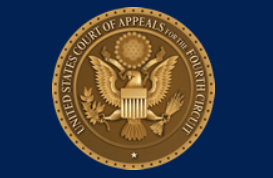YouTube rippers are seen as the largest piracy threat to the music industry, and record labels are doing their best to shut them down.
In 2017, YouTube-MP3, the world’s largest ripping site at the time, shut down after being sued, and several others followed voluntarily.
A group of music companies hoped to achieve the same with FLVTO.biz and 2conv.com. The sites’ Russian owner Tofig Kurbanov was taken to court in the United States last year, accused of facilitating mass copyright infringement.
No Easy Win for the Music Companies
The music companies were hoping for a quick win but they got the opposite. Kurbanov fought back immediately and before the copyright issues were discussed, the complaint was already dismissed.
A Virginia federal court ruled that the music companies lacked personal jurisdiction as the sites were operated from abroad and didn’t ‘purposefully’ target or interact with US users.
This finding was not without controversy. The music companies disagreed and appealed the matter at the Fourth Circuit Court of Appeals, which sent the case back to the district court last month.
In a unanimous decision, the appeals court found that there are more than sufficient facts to conclude that Kurbanov purposefully conducted business in the US, specifically, the state of Virginia.
YouTube Rippers Request a Rehearing
The operator of the YouTube ripping sites was unhappy with the ruling so requested a rehearing of the matter before the full court. According to the defense team, the appeal court’s decision goes against previous rulings and warrants reconsideration.
The panel’s decision – specifically the finding that personal jurisdiction could be premised on the websites’ failure to geoblock visitors from the U.S. (and allowing advertising brokers to geotarget visitors) – is an issue of exceptional importance,” the petition read.
Rehearing Denied
The appeals court judges disagree, however. This week the petition for a rehearing was denied. In a short but clear order, the clerk writes that none of the judges took action.
“The petition for rehearing en banc was circulated to the full court. No judge requested a poll under Fed. R. App. P. 35. The court denies the petition for rehearing en banc,” the order (pdf) reads.
Supreme Court?
Previously, Kurbanov’s legal team warned that the appeals court set a dangerous precedent. Counsel Evan Fray-Witzer said that the ruling will have a broad impact on foreign site operators.
Speaking with TorrentFreak, the attorney now says that they are considering petitioning the Supreme Court. District court rulings on these personal jurisdiction issues have been mixed and a Supreme Court ruling could provide more clarity.
“The issue is important enough that we intend to file a petition for certiorari with the Supreme Court,” Fray-Witzer tells TorrentFreak.
“The Supreme Court has not yet decided a case concerning personal jurisdiction based on internet contacts and we think this case would be a good opportunity for the Court to address the issue head-on.”
If the matter doesn’t go to the Supreme Court, the case will go back to the district court for a review of the jurisdiction matter in full.
In its first decision on the motion to dismiss, the court chose not to conduct a “reasonability test” because the other arguments were sufficient to warrant a dismissal. This has now changed.
The district court can still dismiss the matter over a lack of jurisdiction if the complaint fails to pass the reasonability test. If the court does decide that it has jurisdiction, Kurbanov will have to defend himself and his sites against the record labels’ copyright infringement claims.


 YouTube rippers are seen as the largest piracy threat to the music industry, and record labels are doing their best to shut them down.
YouTube rippers are seen as the largest piracy threat to the music industry, and record labels are doing their best to shut them down.



